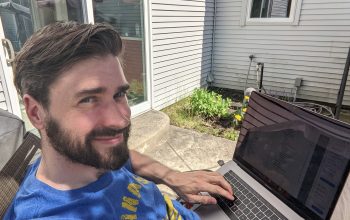I play with a very simplified combat sequence. I like my combats to whiz by very fast. They should be exciting, but should not dominate the game. Combat is the punctuation of the game’s story. Perhaps it makes sense first to look at the official Labyrinth Lord combat sequence before discussing how I deviate form it, and what problems it creates. So here’s the standard sequence from the book:
- Players declare character movement or actions.
- Initiative: 1d6 is rolled by each opposing side.
- The winner of initiative acts first. The Labyrinth Lord may check morale for monsters.
- Movements can be made.
- Missile attack rolls are made, accounting for DEX adjustments, cover, and range.
- Spells are cast and applicable saving throws are made.
- Melee combat occurs; attack and damage rolls are made, accounting for STR and magic adjustments.
- Other sides act through steps 4-7, in order of initiative.
- When all sides of a conflict have acted and the combat will continue into the sequence begins again at step 1.
Group initiative has some advantages. First of all, it’s much easier to go around the table than to write down a variable sequence of player order. Also, it limits the side that can win to one of two: players or enemies. Thus, it’s silly to roll initiative every round, you can just roll it once at the start of the encounter and then go round and round the table. By the system above, not only do I have to write down an unusual order, I have to run through it 5 times: first for declarations, second for movements, third for missile attacks, fourth for spells, and fifth for melee attacks. Yuck.
That said, I noticed that just going around the table and asking each player “what do you do?” leads to some problems. Players can adapt their strategy based on what the person before them did. This I’m OK with, and in fact I love the idea that the players can game the system by moving their physical seats. Changing seating arrangement has so many other subtle ramifications on the game, I like anything that encourages it. However, not having a separate declare vs. act step does mean that spell casting is much more powerful than it should be. There’s no way to interrupt spells — the player declares he is casting and it is done. It’s also easy to lose site of the limitations on casting, notably that you can’t also move, or be in combat, or really do anything else at all.
I’ve been contemplating a way to solve this, and here’s what I’ve come up with. When you want to cast a spell, you declare on your turn that you are doing so. At this point we make sure you’re not doing anything that prohibits casting, such as moving or fighting. Your spell does not go off until the end of the opposing side’s next turn. So basically, turn sequence is something like this:
- Go around the table allowing players to act. Note which players declare they are casting spells.
- Resolve spells from previous monster’s turn.
- Make all monster actions, including declaring which monsters are starting to cast spells.
- Resolve player spells from step 1.
If the monsters win initiative, you just start with #3 then loop back around. This gives both sides opportunity to attack and interrupt spell casting. It does introduce the problem though of what to do when a spell’s target moves out of range or vision while the spell is being cast. Perhaps the caster need merely declare “I am casting…” on his turn, indicating what spell he is casting, but not declaring the targets until the spell gets resolved. Though that still begs the question of what happens when all valid targets are gone by the time the spell resolves. I’m guessing it either goes off where the target used to be, or just fizzles.



1 thought on “Group Initiative and Interrupted Spellcasting”